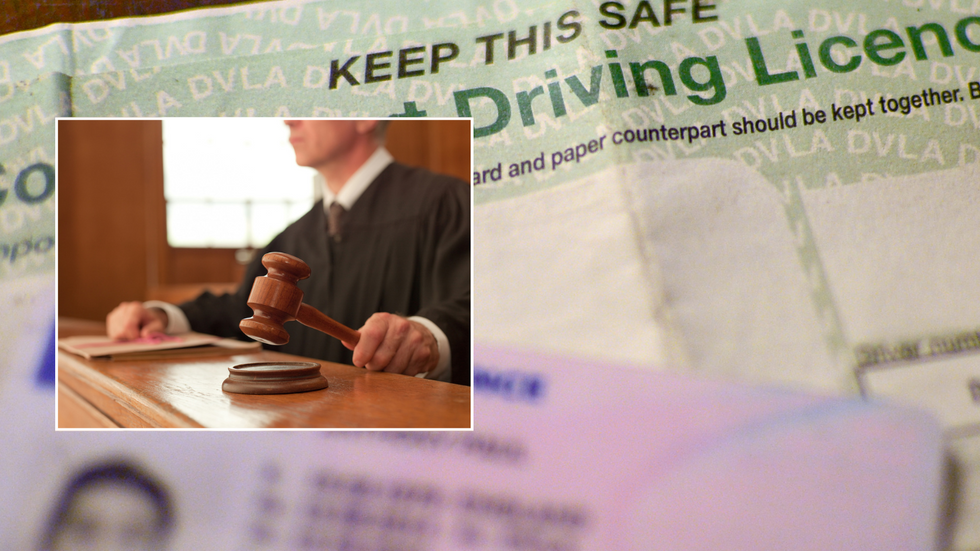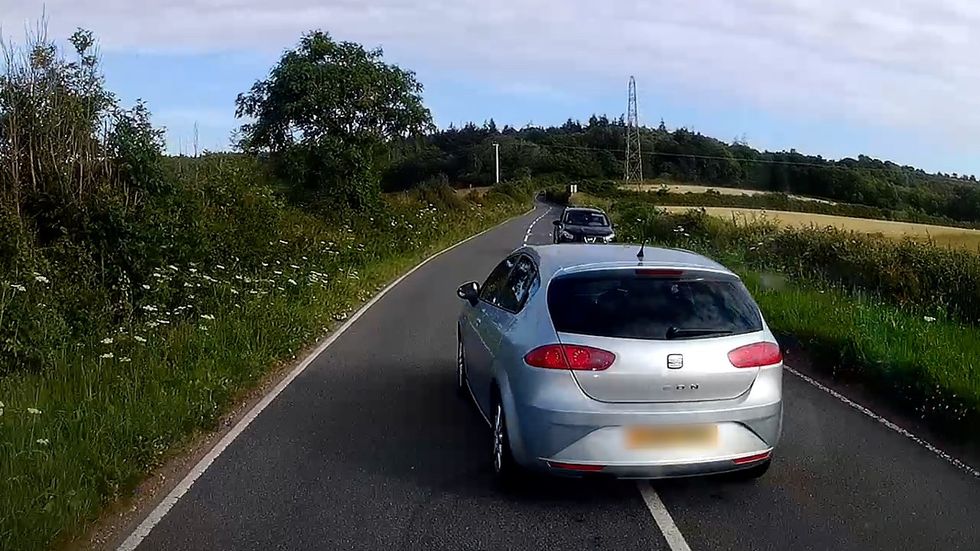WATCH: National Highways warns drivers of road rules as they could face fines
GB NEWS
New guidelines on sentencing for vehicle-related offences was introduced on April 1
Don't Miss
Most Read
Trending on GB News
Motorists have been warned of new driving disqualification guidelines, which could see millions face harsher punishments for breaking rules on UK roads.
The new guidelines introduced by the Sentencing Council became active on April 1 and consolidate all existing guidance on driver disqualification into a single, overarching document.
The changes form part of a broader update that also introduces new guidelines for aggravated vehicle-taking offences and vehicle registration fraud.
These guidelines replace existing rules for magistrates' courts and, for the first time, include sentence levels for the Crown Court.
Do you have a story you'd like to share? Get in touch by emailingmotoring@gbnews.uk

New guidelines on driving licence bans were introduced on April 1
PA/GETTY
The Sentencing Council developed the guidelines following a public consultation that concluded in May 2024. The new guidelines establish clear minimum disqualification periods for various driving offences.
For causing death by dangerous driving, offenders face a minimum five-year ban. Causing death by careless driving whilst under the influence carries a five-year minimum, increasing to six years for repeat offenders within a 10-year period.
Causing serious injury by dangerous driving or whilst disqualified results in a two-year minimum ban. Dangerous driving carries a 12-month minimum disqualification, which increases to two years if the offender has had two or more qualifying disqualifications in the previous three years.
All other offences with obligatory disqualification typically carry a 12-month minimum ban, with longer periods for repeat offenders.
The "totting up" system applies when drivers accumulate 12 or more penalty points, triggering a mandatory disqualification period.
First-time offenders face a six-month ban under these rules. This increases to one year if the driver has had one previous disqualification within the past three years.
Drivers with two or more previous disqualifications will face a two-year ban. The guidelines specify that only disqualifications of at least 56 days imposed within the three years before the current offence are counted.
New drivers face additional scrutiny, with their licences being automatically revoked if they receive six points during their two-year probationary period after passing their test.
The new guidelines clarify how disqualification periods interact with custodial sentences to ensure bans remain effective.When courts impose both a driving ban and immediate custody for the same offence, they must extend the disqualification period.
For standard determinate sentences, the extension equals half the custodial sentence. For more serious offences, including causing death by dangerous driving, the extension equals two-thirds of the custodial term.
Life sentences require an extension equal to the minimum term specified. The Sentencing Council explained that this prevents "the disqualification expiring, or being significantly diminished, during the period the offender is in custody".
The new guidelines outline limited exceptions to disqualification rules, including "special reasons" that may allow courts to avoid or shorten obligatory bans.
LATEST DEVELOPMENTS:
- Major motorway to shut this weekend with drivers warned of new 40mph speed limits in place until 2027
- Labour confirms plans to consult on e-scooter trials following reports of riders 'terrorising pedestrians'
- Local authority forced to open motorhome overnight parking site amid influx of larger vehicles
 Drivers can be issued a hefty fine for poor driving DEVON AND CORNWALL POLICE
Drivers can be issued a hefty fine for poor driving DEVON AND CORNWALL POLICEThese special reasons must relate directly to the offence, not the offender's personal circumstances. The guidelines caution that "loss of employment will be an inevitable consequence of a driving ban for many people" and is not itself sufficient to demonstrate exceptional hardship.
Courts must explain their reasoning when not imposing a disqualification or reducing it below the minimum period.








